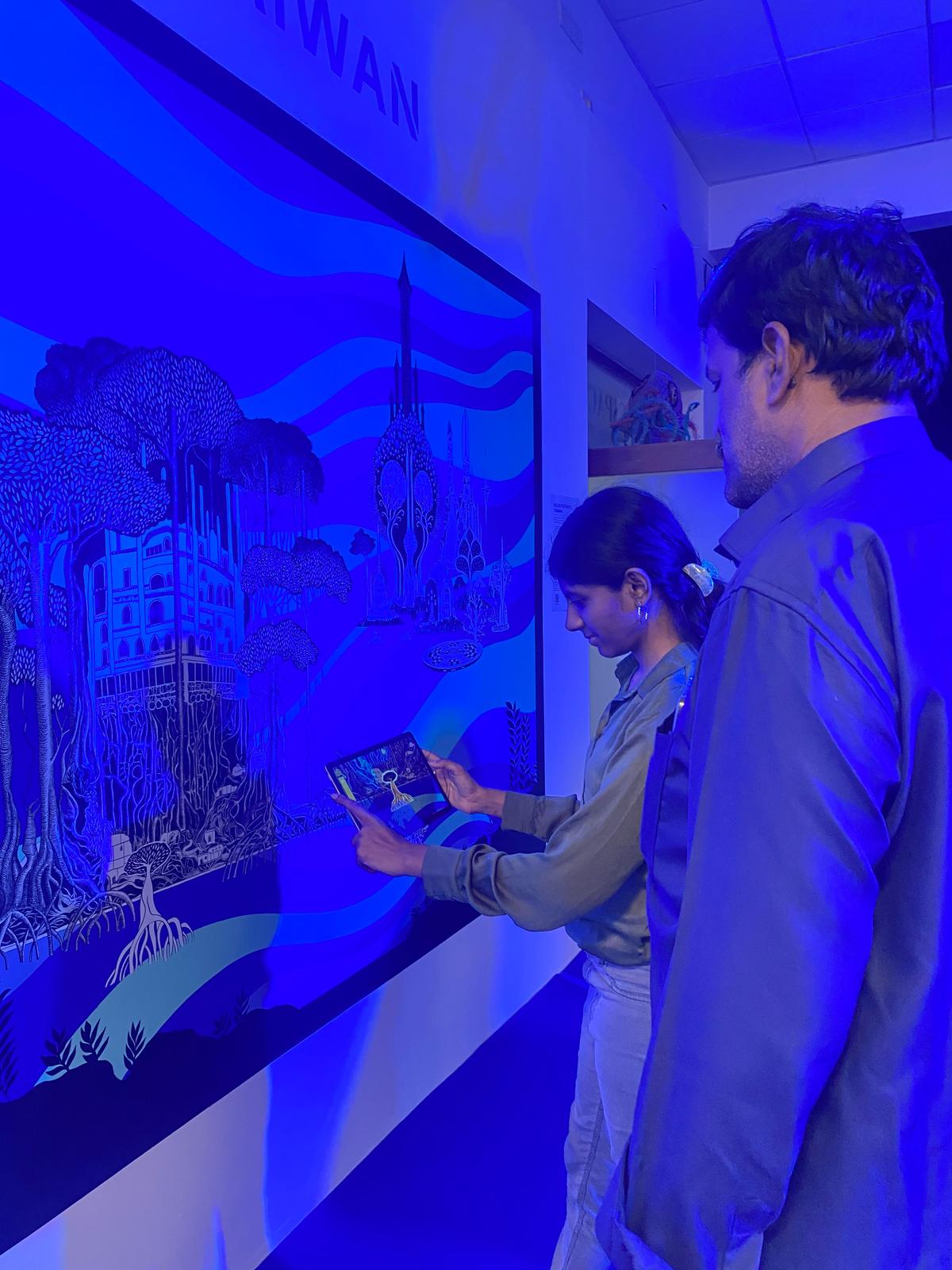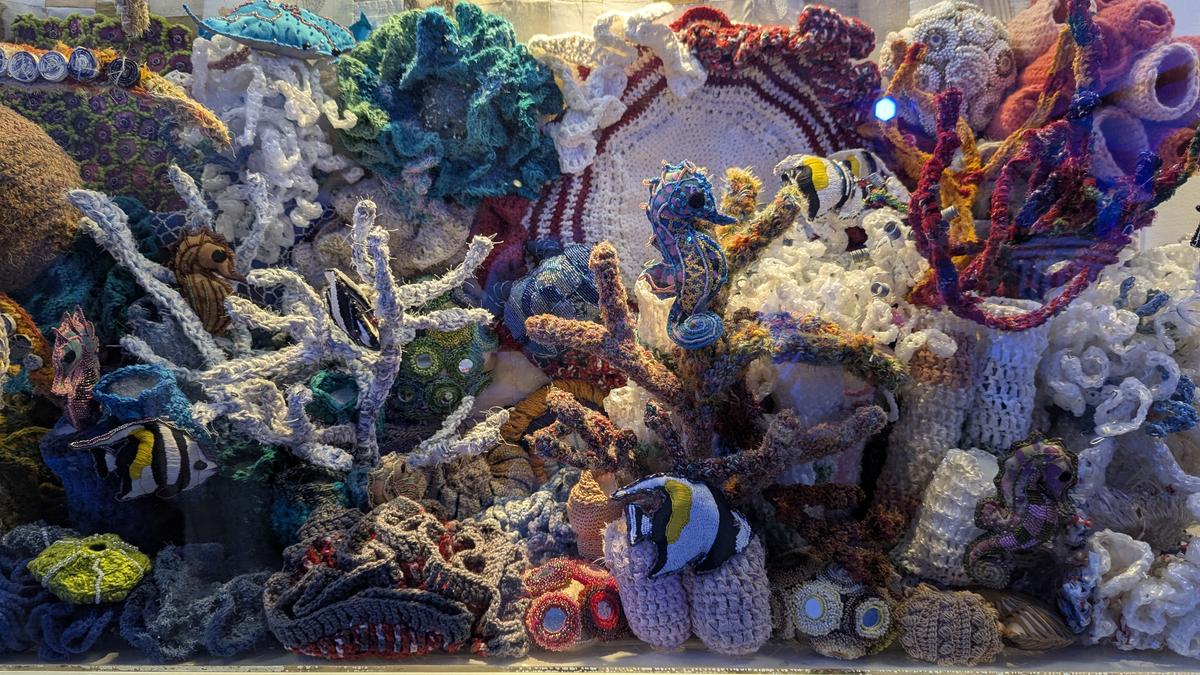Aazhi – The Deep Sea
| Photo Credit: Sangita Rajan
A few weeks ago, Chennai saw the season’s hatch of Olive Ridley baby turtles. The hatchlings slowly made their way into the sea, as people gathered to watch them. These turtle walks are recorded along the East Coast each year.
Under natural conditions, the eggs laid by the mother in nests on the beach would hatch on their own, and the little turtles would crawl to the sea without interference. But with growing threats from predators, fishing activity, and habitat loss, the Forest Department now collects and protects the eggs, releasing them into the ocean in a staggered fashion, once they are born. Despite these measures, more than 1,100 turtles were found dead along the shore this year. The effects of climate change and environmental apathy are becoming evident.
To mark the urgency of ocean conservation, the Alliance Française of Madras is hosting an exhibition titled We Are The Ocean until May 25. It brings together artists, researchers, and the public, through a range of visual and immersive experiences. The show explores the changing relationship between humans and the sea, using art and technology to spark dialogue and reflection. “In June, we will have the United Nations Ocean Conference in Nice, France. The idea is to raise awareness about the ocean and work towards sustainability,” says Alliance Francaise Madras Director, Patricia Thery-Hart.
Spread across multiple spaces, the exhibition features a diverse mix of mediums. These include immersive installations, textile-based storytelling, augmented reality, VR experiences, and sound art. In the passageway leading into the main exhibition, two photo-based exhibits frame the human and ecological dimensions of ocean life.
Faces of the Ocean, presented by the French Development Agency, features portraits of individuals across India’s fisheries sector — from boat mechanics to fish vendors — offering a glimpse into communities that depend on the sea. On the opposite wall, is Antoine Bertin’s Phytoplanktonic Conversations which presents a series of images developed from a sound project. It documents a phytoplankton bloom in the South Atlantic, drawing attention to these vital, oxygen-producing organisms that often go unnoticed.
Tidal Echoes by Milkorva
| Photo Credit:
Special Arrangement
One of the highlights include an installation made with textile waste. Aazhi – The Deep Sea traces the life and loss of coral reefs. The installation depicts stages of deterioration of coral reefs due to change in ocean temperature. The phenomenon, known as coral bleaching, strips the colours off the reefs, leaving them white. “This depicts a healthy ocean, and then slowly, you can see how it changes colour. All of this is made from tailoring waste. We cut them into strips, spin the yarn and then knit, weave, crochet and use other techniques to make this,” says Kalyani Pramod, a multidisciplinary artist, textile designer, and director of Common threads, a Chennai-based fibre art studio.
Other installations pick up similar threads of ecological storytelling. Tidal Echoes by Milkorva uses abstract visuals and field recordings to evoke the changing rhythms of the ocean, while Villes Flottantes, an augmented reality work, explores coral reproduction, mangrove restoration, and plastic reuse. Viewers can download an app to scan the artwork in specific sections, which activates animations and additional layers of information — turning the viewing experience into an interactive one.

Villes Flottantes
| Photo Credit:
Special Arrangement
Other zones include a VR experience simulating deep-sea ecosystems; and a reading corner for children, set up in collaboration with Karadi Tales, offers younger visitors a quieter way to engage with the ocean.
We Are The Ocean is on view at Alliance Française of Madras until May 25.
Published – May 15, 2025 10:00 am IST
